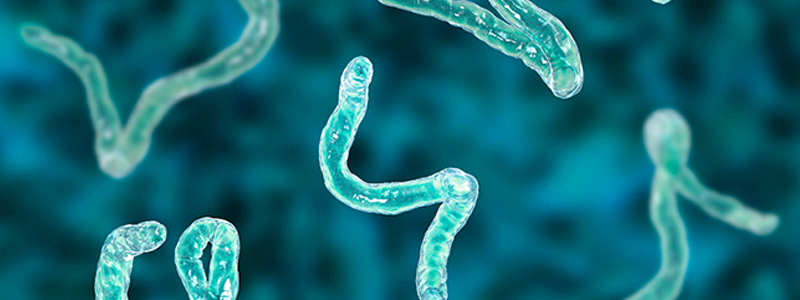BY: SAMANTHA BARTLETT, DVM
New findings from a research effort by the University of Georgia published in the International Journal for Parasitology: Drugs and Drug Resistance has found mutations in the dog hookworm (Ancylostoma caninum) that allow it to be resistant to the three dewormer drug classes used in conventional treatment. The study focused on current and former racing greyhounds. Because the conditions at racetracks are conducive for spread of hookworms, racing greyhounds are dewormed about every 3-4 weeks.
The researchers analyzed fecal samples from three veterinary practices that work with adoption groups, two greyhound adoption kennels and an active racing kennel. Four out of five greyhounds tested were positive for hookworms. Ray Kaplan, an author of the study, noted that the greyhounds testing negative were very likely infected as well. The concern was that infected dogs still showed high levels of hookworm infection even after treated appropriately for hookworms using albendazole, moxidectin or a combination with febantel-pyrantel-moxidectin. This study marks the first demonstration of multi-drug resistance in a dog parasite.
Racing dog breeding facilities and kennels where a large number of dogs are infected with heavy parasite burdens provide more opportunities for the parasites to develop mutations that will help them survive deworming treatment. Frequent treatments with dewormers then allow these resistant worms to survive and pass on the mutation. Over time, worms that are susceptible to the dewormer will be killed leaving behind only the resistant worms. Because veterinarians do not routinely test animals after treatment, drug-resistant worms typically go unnoticed until a dog begins to show clinical signs of hookworm disease.
As greyhounds retire from racing and are adopted into the communities, the drug-resistant hookworms will begin to spread to other pet dogs. One of the most high-risk areas for spread of hookworms is dog parks. Dogs can become infected through contacted with contaminated soil. The larvae can burrow through the dog’s skin and paws. Hookworms are also passed to puppies through their mother’s milk. Hookworms also pose a threat to humans. As in dogs, traditional treatments for human infections will not work against these newly resistant hookworms.
In another study, Kaplan and Pablo Jimenez Castro, lead author of the study, found that these resistant dog hookworms are susceptible to emodepside. A topical emodepside/praziquantel product is only approved for use in cats in the United States. Dogs must take emodepside orally for it to be effective. Use of the emodepside/praziquantel product in dogs is considered extra-label and must only be performed by a veterinarian for correct dosing and observation. All dogs being administered emodepside must be tested for heartworm microfilaria before administration. The American Association of Veterinary Parasitologists (AAVP) recommends that veterinarians confirm multi-drug resistance and determine correct dosing and administration procedures for dogs before administering emodepside.
The AAVP has formed a national task force to address the issue of resistant canine hookworms. Antoinette Marsh, PhD, is the chair of the task force and recommends that veterinarians follow up on patients in 10-14 days to verify the dewormers prescribed were effective and to continue to monitor patients until fecal egg shedding ceases.











